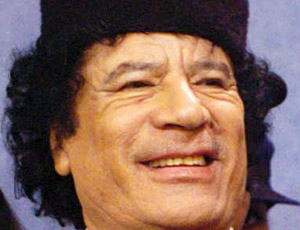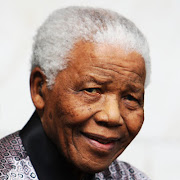 |
| Leader of Libya, Muammar Gaddafi. |
The ICC has jurisdiction over the most serious crimes, including genocide, crimes against humanity, war crimes and crimes of aggression, as laid down in Article 5 of the Rome Statute that created the Court.
Article 13(b) of the Statute gives the Court power to exercise jurisdiction over cases referred to the Prosecutor by the UNSC. The February 26 referral is significant because it is an indication that the Council unanimously believes serious crimes within the jurisdiction of the ICC have been committed by the Gaddafi regime against its own people.
Following this referral, the prosecutor of the ICC is expected to open an investigation into the situation in Libya since 15 February 2011 to determine whether crimes under the jurisdiction of the court have been committed, and bring charges against perpetrators.
It is worth recalling that following the outbreak of massive pro-democracy demonstrations in Libya, Colonel Gaddafi, in a televised speech, promised to "cleanse" Libya of pro-democracy demonstrators - "house by house."
Since the outbreak of demonstrations more that one thousand people have lost theirs lives (according to the UN) and the situation in Libya has been described as a "humanitarian crisis."
Now that the deadly situation in Libya has been referred to the ICC, the Prosecutor should move quickly - investigate the alleged atrocities committed by Gaddafi's regime against pro-democracy demonstrators and charge those responsible for grave crimes in Libya.
Historically, all 15 members of the UNSC backed Resolution 1970 (2011) that imposed sanctions on the Libyan regime and referred the situation in the country to the ICC.
This is only the second time the UNSC has made a referral to the ICC. The first was the referral of the situation in Darfur, Sudan in March 2005 that culminated in the indictment of President Omar Hassan al- Bashir of Sudan for genocide, crimes against humanity and war crimes.
Gaddafi has been in power for 41 years - since 1969





















